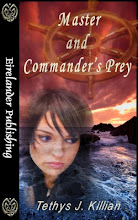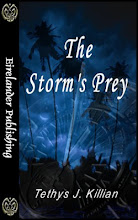My mentor says to me, you are making your hero girly. After talking to my hubby one day on the phone she spoke to me. Oh yes, she makes a habit of knowing every member of the family. lol I'm straying from my purpose here, but I'm getting to it. Really, I am. She told me to pattern my hero after my hubby he is an alpha male and they are the action oriented heroes. What an awakening that was for me.
True, I knew he was my hero, but her words reminded me of some of the instances when he'd been there for people in his life including myself. The more I thought about it, I realized I lived with a real live hero. He is an alpha male with a soft core in his heart.
I hate to read about wimpy heroes. lol Even though, I have written my heroes as wimps in the past. I'm trying to break the habit. Okay, I admit it's tough not to write a wimpy hero, but I still don't like to read about them.
A hero is supposed to be tough, take charge and always be heroic when the chance comes. He thinks and he acts, which means he instinctively knows what to do in all instances. A secondary male figure can be wimpy, but not the hero.
This doesn't mean that the hero can't show his softer side. He has to open himself up to his tender side or he wouldn't be the hero. Of course, this is not the most frequent side of him you see but it's there hidden away waiting to come out at the most unexpected times.
What do you think about wimpy heroes? Do you want to read about them in your books, or do you want to read about an alpha male who takes charge.
Best,
Sandra K. Marshall
http://www.sandramarshallblog.blogspot.com
Showing posts with label a worthy hero. Show all posts
Showing posts with label a worthy hero. Show all posts
Wednesday, October 14, 2009
Wednesday, February 11, 2009
Who Can Resist A Worthy Hero?
by Angela Guillaume
I firmly believe that in order to create a "perfect" hero in a fictional setting, we must first endeavor to create a "real" hero—one that could appear as comfortable in the pages of a book as he'd be crossing Main Street on a busy April afternoon.
According to Umberto Eco, the famed Italian literary author (among his works: The Name of the Rose, which was adapted into film), we should ask the question, "How can fiction help us to attain a severe and correct definition of the truth?" I heard the man ask this very question a few months ago at an Emory University lecture series in Atlanta, Ga. I think this is a valid question, and it does have some application to this month's RBA theme: Searching for the Perfect Hero.
From what I have garnered speaking to different authors, every hero is perfect—perfect for the book he was written into. Why? Because he is a creation of the mind of the author. Yet, to think of Eco's question, can a hero reflect that which is true? I believe he can—because a hero, for all intents and purposes, is a REAL man. A fictional hero is as real as a flesh and blood person in his own context—that is, in the novel.
Indeed, another of Eco's comments was, "While historians evoke real ghosts, novelists create real characters." Thus, a fictional hero can be as true and real as a historical one. For example, Sherlock Holmes, Conan Doyle's hero starring in many tales, was real, and he really lived in Baker Street and had a sidekick called Watson… in the novel! His identity is unmistakable, and he is recognized by many, still today. So essentially, the difference between reality and fiction could be seen as a very blurry one, and each is true in its own dimension.
Another hero we have all heard about is Superman—and another thing we also know to be "true" is that Clark Kent IS Superman. But, as Eco continues to say, true assertions such as this may not always be found in history. For example, to say that "Hitler lost his life in a Berlin bunker" may possibly be true, yet, it is not proven beyond the shadow of a doubt.
So, once we have created an "irrefutably real" hero, how do we make sure he's PERFECT? What, indeed, is perfection? I think that the moniker "perfect" is often misused—some say that nothing ever can be perfect. I disagree, and I think that perfection is not necessarily something that is completely great, precise, faultless and wonderful; rather, something that is where and how it should be. Something that is fated, that is truly meant to be in the world that surrounds it.
My view of this is when both the author and the reader can identify and understand the character, as well as the character’s fate and goals—when the reader empathizes and FEELS for this hero—then that same character becomes, essentially, both real and perfect. I have a different take on this—perfection to me does not essentially mean the complete absence of flaws; rather, it means the capacity to be and act "human", therefore, "real". Thus, reality and perfection are a sort of superimposition, one over the other, creating the amazing mélange that constitutes what we define a compelling character.
James Bond is the perfect hero. Why? Not because he is picture perfect, but because despite all his skills and savoir faire, he also gives us glimpses of humanity (See "Casino Royale"). He probably wouldn't make a great "Gandhi" type character and he would probably suck as Heathcliff (Wuthering Heights) but we cannot deny that he is perfect in the very role for which he was conceived. Darcy (Pride and Prejudice) is the perfect hero because, despite his pride, he also displays a kind and compassionate heart. Jason Bourne (The Bourne saga—Robert Ludlum) is a perfect hero because he is tortured and wonderfully flawed based on his past experience. He is an extraordinary man, a lethal killer, who refuses to be a machine and strives to find himself.
It may therefore be stated that perfection lies, peculiarly, amidst a universe of failings. The reader is thus allowed to sift through these human failings (therein lies the fun of discovery) and find that which lies beneath—the hidden gem that unveils this hero's innermost core: one that is worthy and honorable.
In essence, to break all of this down and apply it to the realm of the romantic novel, I think that a perfect hero is, above all else, a worthy one.
~ Angela Guillaume ~
Where love is more than history
Website: http://www.angelaguillaume.com
MySpace: http://www.myspace.com/angelaguillaume
Facebook: Angela Guillaume
Yahoo Group: http://groups.yahoo.com/group/breathtakingromance/Blog: http://angelaguillaume.blogspot.com
"Mile High to Heaven"--Xtra hot!!!--Contemporary short. Available March 2009 at Whiskey Creek Press Torrid.
"Mr. & Mrs. Foster"--A toasty warm holiday tale. More info at: www.whiskeycreekpress.com/torrid
I firmly believe that in order to create a "perfect" hero in a fictional setting, we must first endeavor to create a "real" hero—one that could appear as comfortable in the pages of a book as he'd be crossing Main Street on a busy April afternoon.
According to Umberto Eco, the famed Italian literary author (among his works: The Name of the Rose, which was adapted into film), we should ask the question, "How can fiction help us to attain a severe and correct definition of the truth?" I heard the man ask this very question a few months ago at an Emory University lecture series in Atlanta, Ga. I think this is a valid question, and it does have some application to this month's RBA theme: Searching for the Perfect Hero.
From what I have garnered speaking to different authors, every hero is perfect—perfect for the book he was written into. Why? Because he is a creation of the mind of the author. Yet, to think of Eco's question, can a hero reflect that which is true? I believe he can—because a hero, for all intents and purposes, is a REAL man. A fictional hero is as real as a flesh and blood person in his own context—that is, in the novel.
Indeed, another of Eco's comments was, "While historians evoke real ghosts, novelists create real characters." Thus, a fictional hero can be as true and real as a historical one. For example, Sherlock Holmes, Conan Doyle's hero starring in many tales, was real, and he really lived in Baker Street and had a sidekick called Watson… in the novel! His identity is unmistakable, and he is recognized by many, still today. So essentially, the difference between reality and fiction could be seen as a very blurry one, and each is true in its own dimension.
Another hero we have all heard about is Superman—and another thing we also know to be "true" is that Clark Kent IS Superman. But, as Eco continues to say, true assertions such as this may not always be found in history. For example, to say that "Hitler lost his life in a Berlin bunker" may possibly be true, yet, it is not proven beyond the shadow of a doubt.
So, once we have created an "irrefutably real" hero, how do we make sure he's PERFECT? What, indeed, is perfection? I think that the moniker "perfect" is often misused—some say that nothing ever can be perfect. I disagree, and I think that perfection is not necessarily something that is completely great, precise, faultless and wonderful; rather, something that is where and how it should be. Something that is fated, that is truly meant to be in the world that surrounds it.
My view of this is when both the author and the reader can identify and understand the character, as well as the character’s fate and goals—when the reader empathizes and FEELS for this hero—then that same character becomes, essentially, both real and perfect. I have a different take on this—perfection to me does not essentially mean the complete absence of flaws; rather, it means the capacity to be and act "human", therefore, "real". Thus, reality and perfection are a sort of superimposition, one over the other, creating the amazing mélange that constitutes what we define a compelling character.
James Bond is the perfect hero. Why? Not because he is picture perfect, but because despite all his skills and savoir faire, he also gives us glimpses of humanity (See "Casino Royale"). He probably wouldn't make a great "Gandhi" type character and he would probably suck as Heathcliff (Wuthering Heights) but we cannot deny that he is perfect in the very role for which he was conceived. Darcy (Pride and Prejudice) is the perfect hero because, despite his pride, he also displays a kind and compassionate heart. Jason Bourne (The Bourne saga—Robert Ludlum) is a perfect hero because he is tortured and wonderfully flawed based on his past experience. He is an extraordinary man, a lethal killer, who refuses to be a machine and strives to find himself.
It may therefore be stated that perfection lies, peculiarly, amidst a universe of failings. The reader is thus allowed to sift through these human failings (therein lies the fun of discovery) and find that which lies beneath—the hidden gem that unveils this hero's innermost core: one that is worthy and honorable.
In essence, to break all of this down and apply it to the realm of the romantic novel, I think that a perfect hero is, above all else, a worthy one.
~ Angela Guillaume ~
Where love is more than history
Website: http://www.angelaguillaume.com
MySpace: http://www.myspace.com/angelaguillaume
Facebook: Angela Guillaume
Yahoo Group: http://groups.yahoo.com/group/breathtakingromance/Blog: http://angelaguillaume.blogspot.com
"Mile High to Heaven"--Xtra hot!!!--Contemporary short. Available March 2009 at Whiskey Creek Press Torrid.
"Mr. & Mrs. Foster"--A toasty warm holiday tale. More info at: www.whiskeycreekpress.com/torrid
Labels:
a worthy hero,
fiction,
heroes,
James Bond,
Jason Bourne,
reality,
Superman,
Umberto Eco
Subscribe to:
Posts (Atom)





.jpg)
.jpg)





